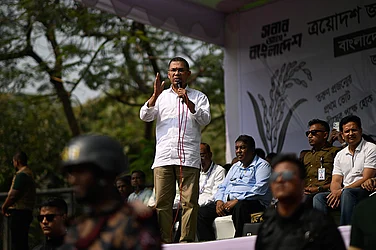The Belt and Road Initiative (BRI), which was part of the Silk Road Economic Belt, connecting China to Europe through the ancient land route, once the pet project of President Xi Jinping is no longer on top of China’s foreign policy agenda.
Not that China has abandoned its connectivity plans but is trying to rebrand it, thanks to the negative publicity associated with the infrastructure projects in the last five years or so. The BRI plans have been criticized by the rest of the world for lack of transparency, getting poorer nations into debt traps as well as environmental considerations. The BRI is regarded as China’s efforts at spreading its influence across countries in Asia and Africa. Chinese leaders now prefer to talk of the Global Development Initiative.
Xi unveiled the plans on a visit to Kazakhstan in 2013. A month later when Xi visited Jakarta, he again spoke of replicating the old maritime Silk route. There were two elements to the proposal, a land as well as a sea route. Pakistan’s Gwadar port and the development of the China-Pakistan Economic Corridor(CPEC) are at the centre of the initiative. In 2014, Xi announced a $60 billion outlay for the project. India has objected to the CPEC as many of the projects are laid through in POK, which New Delhi claims as its territory. While the BRI started with a bang, and many Asian countries, including India’s South Asian neighbours signed on to it.
President Xi has not mentioned the “Belt and Road Initiative” in speeches since 2022. Apart from the mention of “advancing high-quality Belt and Road cooperation,” the BRI has not used the word BRI in any important speech, including his address at the United Nations.



























